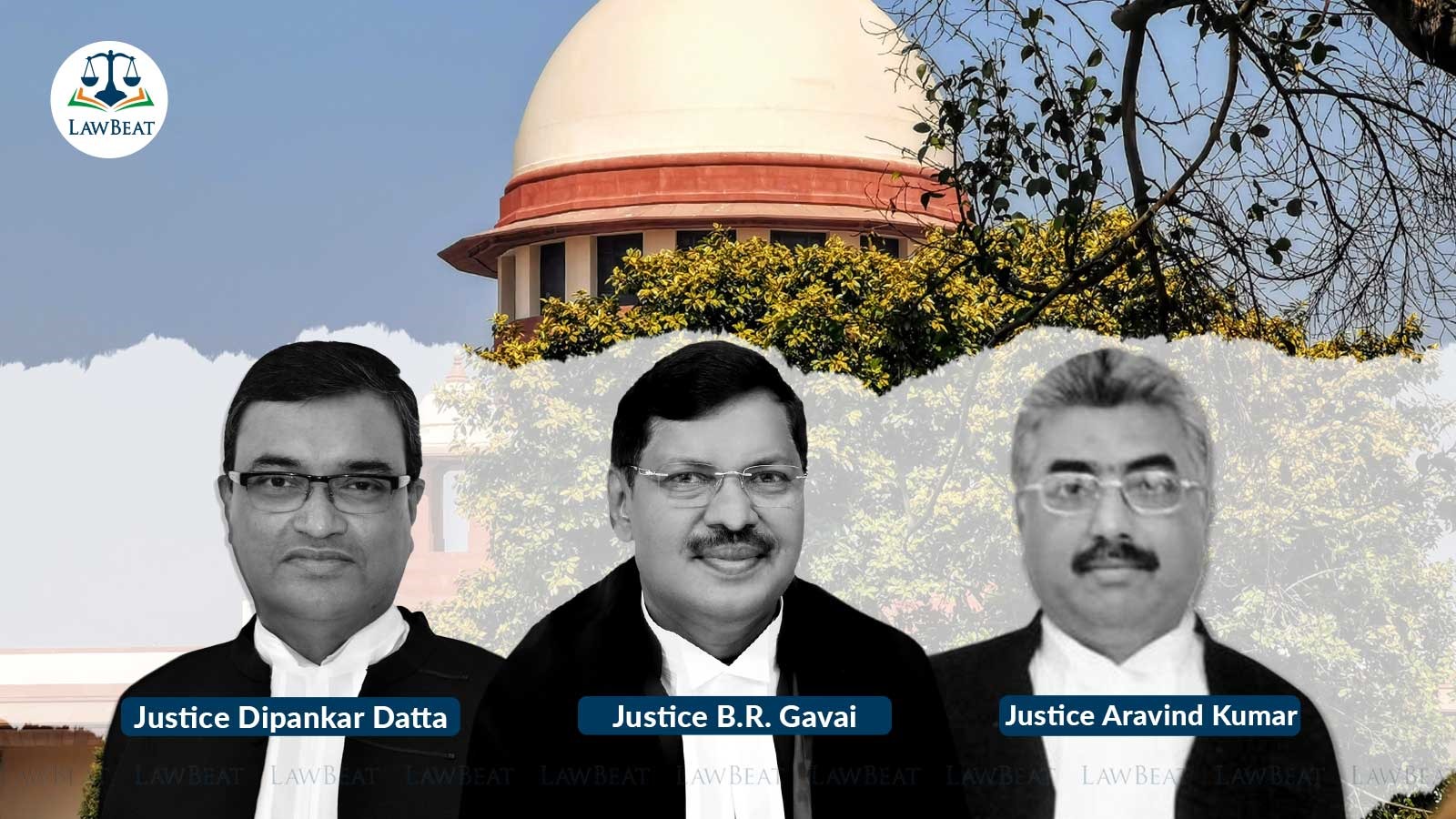'False implication can't be wholly ruled out,' Supreme Court sets free man accused of culpable homicide

Court has said all circumstances taken together tilt more towards the inference that deceased was under the influence of alcohol, did fall from a tree, had a head injury and several scratch injuries and, most importantly, in the process of the fall and hitting the ground, bit his tongue resulting in the lacerated injury.
The Supreme Court has on December 12, 2023 set free a man of the charges of culpable homicide not amounting to murder, saying his false implication cannot be wholly ruled out and his abscondence cannot solely come to the help of the prosecution as there was delay in lodging of the FIR and withholding of material witnesses, among other circumstances.
A bench of Justices B R Gavai, Dipankar Datta and Aravind Kumar acquitted Sekaran by allowing his appeal against the Madras High Court's judgement of 2009 which had converted his conviction from murder to culpable homicide not amounting to murder and sentenced to five years jail term.
It was alleged that the appellant had assaulted the victim Palas, a coconut cutting coolie, with a rubber stick on March 12, 1996 after the victim demanded his wages of Rs 50 from him. The victim died on March 14, 1996 and the FIR was lodged on March 15, 1996.
In the case, the court, however, noted the wife of the deceased has not deposed about assault with the doctors before the admission of the patient.
The bench also pointed out the absence of Ponnaian and Velukutti, two others who were alleged to be present at the time of assault, assumes importance. In fact, their absence has the effect of seriously damaging the prosecution case and rendering it quite unreliable, it said.
"None of these medical documents having been produced, there is no corroboration that the head injury which Palas suffered was caused by the blow of the rubber stick and also that the same could not have been suffered as a result of a fall from the tree," the bench said.
Having noted the presence of alcohol in the autopsy and other reports, which indicated it is “possible to have sustain injuries found on head if a person fallen down from a high tree”, gives us reason to entertain serious doubts about the prosecution case, the bench further added.
"All circumstances taken together tilt more towards the inference that Palas was under the influence of alcohol, did fall from a tree, had a head injury and several scratch injuries and, most importantly, in the process of the fall and hitting the ground, bit his tongue resulting in the lacerated injury... the appellant had been framed possibly in connivance with one Radhakrishnan (not examined)," the court said.
The court also noted the appellant could be apprehended three years after the incident in Kerala after vigorous search.
"However, abscondence by a person against whom an FIR has been lodged and who is under expectation of being apprehended is not very unnatural. Mere absconding by the appellant after alleged commission of crime and remaining untraceable for such a long time itself cannot establish his guilt or his guilty conscience. Abscondence, in certain cases, could constitute a relevant piece of evidence, but its evidentiary value depends upon the surrounding circumstances. This sole circumstance, therefore, does not enure to the benefit of the prosecution," the bench said.
